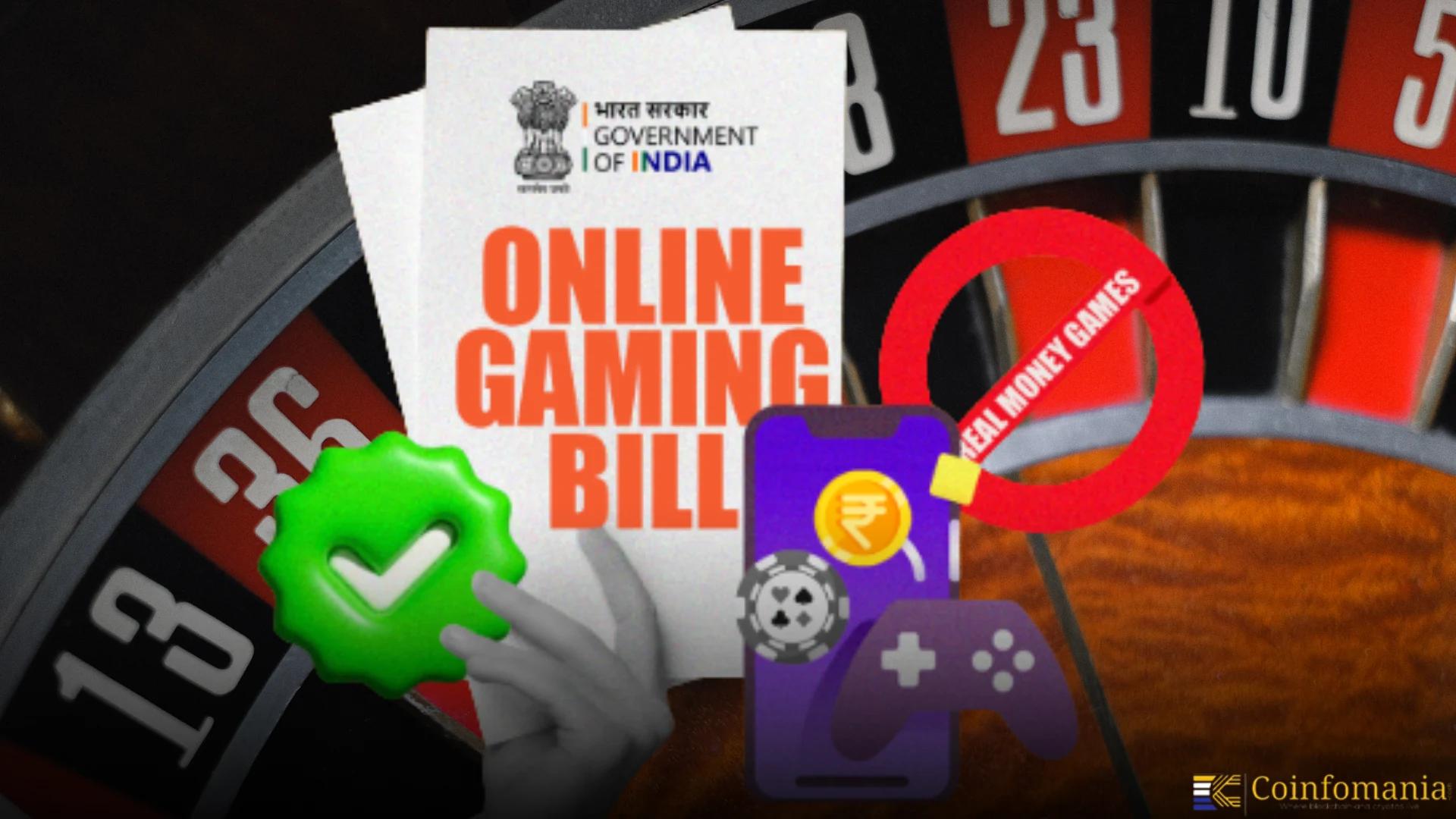India Passes Gaming Bill As Crypto Faces Strict Scrutiny
India’s Gaming Bill halts real money play as Dream11, MPL, Zupee, and others suspend paid features, while crypto faces tighter scrutiny.

Quick Take
Summary is AI generated, newsroom reviewed.
India bans real money gaming under Online Gaming Bill August 2025
Major gaming platforms like Dream11, MPL suspended paid features and refund user deposits
Cybercrime report links cryptocurrency to scams, laundering, and ransomware attacks
Committee calls for crypto forensics labs, tighter monitoring, and stronger enforcement
India prepares comprehensive crypto regulation while testing innovation sandboxes
India’s ban on real money gaming in August 2025 is one of the clearest examples yet of how decisively the government is willing to act. The Online Gaming Bill, passed on August 20-21, shuts down any platform that involves deposits or stakes, which the law now calls “online money gaming.” An Online Gaming Authority is being set up to enforce it, and the penalties are sharp: up to three years in jail and fines of up to ₹1 crore.
Apps Shut Paid Features post Gaming Bill
Dream11, MPL, Gameskraft, Zupee, Probo, My11Circle, RummyCulture, and others all suspended their real money features within hours. Dream11 paused its pay-to-play contests and will disable paid features entirely once the bill gets presidential assent. MPL too has stopped all money-based offerings and promised refunds. Gameskraft froze “Add Cash” on its rummy apps. Zupee & Probo halted operations outright. My11Circle, RummyCulture, WinZO, Nazara, and Head Digital Works took similar steps, keeping free-to-play options open while withdrawals remain available.
Crypto Flagged in Cybercrime Report
At the same time, the Standing Committee’s cybercrime report painted crypto in an equally restrictive light. It mentioned crypto 15 times, almost entirely in connection with cyber threats. The report highlights cryptojacking, where hackers hijack devices to mine coins. It details scam centers and trafficking networks across Southeast Asia funded through crypto payments. Money laundering came up again and again in the report. It pointed out how peer-to-peer transfers and offshore platforms make it simple to shift money across borders almost instantly. Ransomware was another major concern. The report warned that it’s becoming a national security threat, with hospitals, schools, and businesses increasingly hit by crypto-based ransom demands. Finally, it links crypto to the underground “crime as a service” economy, where illicit financial services are built on top of it. After the Gaming Bill, this report is headed towards Crypto regulations.
Committee Pushes for Forensics and Stronger Enforcement
The Committee describing risks has pushed for stronger enforcement than a blanket ban. It wants advanced crypto-forensics labs in every region. The report suggests better data-sharing agreements with foreign governments and more active monitoring of wallets and exchanges by enforcement agencies. Taken together with the ban on real money gaming, the tone is to have enforcement-first action over gradual, consultative reform.
Currently, in India, there is a 30 percent tax on gains and a one percent TDS on trades. Virtual digital assets fall under Section 115BBH of the Income Tax Act. Here, exchanges, custodians, wallets, and even mining pools have had to register with FIU-IND. SEBI now watches crypto that resembles securities. The RBI is setting out a 2025 framework defining operational boundaries. On top of this, regulators are running consultation papers and sandbox schemes, while India prepares for a Financial Stability Board peer review in October.
Big Crypto Law Expected after Gaming Bill
Looking ahead, it’s hard to avoid the conclusion that a comprehensive crypto regulation bill is on the way. It will almost certainly spell out what’s allowed and what’s banned. This will continue mandating licenses for exchanges, wallets, custodians, and OTC desks. We can expect tighter KYC and AML norms, stricter transaction monitoring, and full reporting of suspicious transactions to both FIU-IND and CERT-In. The report’s emphasis on digital forensics means new regional labs and more law enforcement training in blockchain analytics.
There is also a parallel track where the state supports “safe” digital innovation. Regulatory sandboxes for DeFi, CBDC experiments, and tokenised assets are slowly expanding. NITI Aayog is piloting blockchain in land records, supply chain, and trade finance.
Risks of Blanket Bans
The danger is repeating the pattern we just saw with real money gaming. A blanket ban, like in the Gaming Bill, might look decisive, but it risks driving activity into black markets where oversight is weaker. A more balanced approach, like the RBI’s tiered model for banking access, can give regulators the control they want while letting legitimate businesses operate within clear rules. Right now, India is at a turning point. The crackdown on real money gaming shows how far the state will go to assert control. Meanwhile, the cybercrime report sets the stage for strict crypto regulation centered on money laundering and illicit use.
Follow us on Google News
Get the latest crypto insights and updates.


